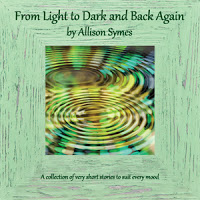Facebook – General – and Chandler’s Ford Today – and More Than Writers (ACW blog page)
Busy day on the blogging front. Firstly, my CFT post is about Signs of Spring– the ones I love and some I loathe. Comments as ever welcome on the CFT comments box.
Image Credit: All the images are from Pixabay as usual, do see the CFT and More than Writers’ links for the captions I put to these originally. Hopefully the pictures will intrigue you. I love the one showing clocks going off into space!
Secondly my spot on the Association of Christian Writers’ More than Writers blog is about When Writing is Difficult. I share some hints and tips. Hope you find them helpful.
Had a lovely mini-Swanwick meet up with the fab JuneWebber in Winchester today. Lovely weather, great company, and lots of talk about writing and stories. Now that is what I call a good day. Looking forward to Swanwick itself in August of course.
My CFT post this week will be a seasonal one, all about the signs of spring I love (and a couple that I loathe). Link up tomorrow.
Have almost got my 750-word story ready for submitting. I always find the first edit to reduce word count is the easy one. I take out my known wasted words, find ways of rephrasing things etc and that brings the word count down significantly. The hardest edit is when I’ve done all this and I still need to reduce the word count yet without “losing” the story itself. Almost there though.
Righty-ho, on to the final section of my What I Like From a Good Book A to Z.
U = Uniqueness. There must be something about the book that makes it stand out (and most of the time this will be down to how good the characters are. I’m on the characters’ side in the character -v- plot debate because a weak character will drag down a strong plot. I think it is the “cast” people remember from a good book, rather than the plot. How often have you said, when asked if you’ve read a certain book, something like “oh is that the one with so-and-so in it?” I know I have, too many times to count!).
V = Variety (of pace). I want plenty of fast paced action/dialogue etc but I also want the “in between” bits which move the story on, tell me what I need to know, and give me chance to get my breath back before the next action scene.
W = Writing that is a sheer pleasure to read because it flows. Yes, clever lines are wonderful, but it is the overall effect I’m after here. You want to feel at the end of the book that the writing couldn’t have been better (whoever said writing is easy hasn’t done any!).
X = Xeno. Okay, confession time. I looked this one up. It means strange. I wasn’t going to cheat by using eXtraordinary for this one or anything like that and X-rated seems too easy! So then, strange (oh and trust me I’ll be remembering xeno the next time I play Scrabble!) – well I love quirky fiction so this ties in beautifully with that. I love stories of strange creatures and worlds BUT they have got to make sense within that setting and still have something we can identify with to make us want to read on to find out more. So xeno or being strange has its place in a good book but it has got to be integral to it and not an add-on.
Y = Yield. An odd one to choose? I don’t think so. A good book at the end of it should have yielded to you the reader an enjoyable read when all is said and done. For me it is always the characters that make a book work or not. Also it is interesting to follow characters working out when they should yield on a point to develop the story or to get themselves out of a big hole. Whatever the reason for a character yielding or changing their mind, there should be a justified reason for it.
And finally…
Z = Zero. This is in terms of feeling that absolutely no words have been wasted. There is nothing that could be changed without spoiling the story in some way.
Happy reading!
Facebook – From Light to Dark and Back Again
I find I have to know the voice of my character before I can really get into the story and do it justice. This is where outlining is so useful.
For flash fiction, I often find a line or two about what the character’s attitude to life is and why is a good place to start. I soon know whether a character is bossy but kindhearted with it, a pain in the neck to all and sundry etc. I see this kind of prep work as essential. It’s just that novel writers have to do more of it!!
Themes for any story are best kept simple to (a) avoid overegging the pudding and (b) avoid you managing to tie yourself up in knots as you write the thing.
The strongest themes can often be condensed to one word only – love, revenge, justice, adventure etc.
The best plot lines are exactly that – a line. For example:-
Mother vows to avenge child killed by drunk driver. (My Punish the Innocent).
Villager vows to stop the animal cruelty going on at home. (My The Circle of Life)
Now the nice thing here is the take you put on these themes is up to you. Punish the Innocent is a serious crime story. Couldn’t really be anything else I feel.
For The Circle of Life, I turned this into a humorous story (my character finds a very neat way of thwarting his fellow villagers who don’t share his views).
The great thing is to have fun with what you write. I’m convinced it does show through in what you produce.
Fantastic day out today as a post-birthday treat with better half and Lady at West Bay in Dorset. Lovely weather. Good time had by all. All shattered.
But time to do something different every now and then is useful both in terms of health but also for your writing. You do come back to it refreshed and that’s important. I see writing as very much a long haul thing and stamina is needed (to cope with the rejections and other disappointments along the way for one thing). So breaks away can help with that enormously.
Another way of giving yourself a break, when going to the beach is not immediately available as an option (!), is to give yourself time to free write, brain storm, jot down notes for future ideas etc. I find this great fun, put said thoughts aside for a while and come back to them later. If the ideas still appeal (and they don’t always), I then write them up!
Goodreads Author Blog – Books to Dip Into
I love books you read straight through from cover to cover but I also adore those where you dip into them as and when.
Things like the Guinness Book of Records come into that category. I’m currently reading a “big book of facts” produced by Classic FM but will almost certainly have regular dips into this, rather than read it straight though. (To be fair it is a HUGE book).
I also like the way this mixes up my reading a bit as I read flash fiction (as well as write it), short stories, and novels. I also dip read. Dip reading is also useful when I’ve finished a book and am not quite sure what I’m going to read next.
I often fancy a change of mood after completing a novel and until I know what is next on my reading “menu”, I will dip into books like this until such time as I do know.
Fairytales With Bite – Favourite Character Types
This is by no means a definitive list and I suspect you could add many of your own but my favourite character types include:-
1. The underdog. (Most of the fairytales have good examples of these. Cinderella is not expected to do well by her stepmother and stepsisters!).
2. The character who is not expected to be a hero but becomes one. (Frodo Baggins is a great example).
3. The rebel (especially one who can see through the faults of their own side and has tried to rectify them but to no avail. My fairy godmother character, Eileen, is of this ilk. Characters like that are great fun to write for).
4. A well rounded animal character. I have a soft spot for anthropomorphism. Where would The Wind in the Willows be without it?! I also adore Gaspode in Terry Pratchett’s Discworld.
5. Those who deal out justice to those worthy of receiving it! This is usually where some character thinks they’ve got away with something and our hero/heroine turns up to prove them wrong. Or it can be someone like Terry Pratchett’s Lord Vetinari who deals out what he feels is appropriate justice (and is usually right. Look at how he deals with Moist Von Lipvig in Going Postal).
This World and Others –
The A to Z of Story Essentials Part 3
Moving on from last week then…
K = Killer Lines. The ones that make you gasp, laugh out loud, or simply make you wish you could’ve written something that good! Use them as inspiration to do exactly that!
L = Logic. A strange thing to put for this perhaps? I think not. A story must make sense, even if it set in the most fantastical place imaginable. The characters must make sense. Your story needs a structure that follows through from start to finish. So the story then must have its own internal logic. Anything that doesn’t “feel” like a story when claiming to be one will, I think, put readers off. We have expectations that stories will work and it is because the logic of them works.
M = Murder. I do love a good crime story and most of those are based on murder. But this can be applied to other genres here if you take murder to mean “killing your darlings” if they’re in the way of your story. When you read of the death of a character in a story, there should be a point to it and move the story onwards. A character that doesn’t do anything for the story should not be in it and good writers will ensure their characters do earn their place. Sometimes that will mean literally killing them off as part of the story. Sometimes it will mean realising this character isn’t strong enough so back to the drawing board for one that is!
N = Narrative. Should be compelling, drive the story on, tell the reader things they need to know in a way said reader is going to find entertaining (no lecturing!) etc.
O = Overwhelming Odds. I do love a character that has to face up to these and overcome them. It is fascinating to find out how they do it. It should also show depth to that character and it’s even better when the character is surprised as they look back at how far they’ve come on, what they’ve been able to achieve etc. Incidentally the overwhelming odds can be something as dramatic as Frodo Baggins’ quest in The Lord of the Rings but it can be something which, to us, might seem mundane, but to your character is everything. As long as reader knows it really is everything to that character and why, they should want to find out whether the character overcomes or not.
More next time…









































































































































































































































































































































































































































































